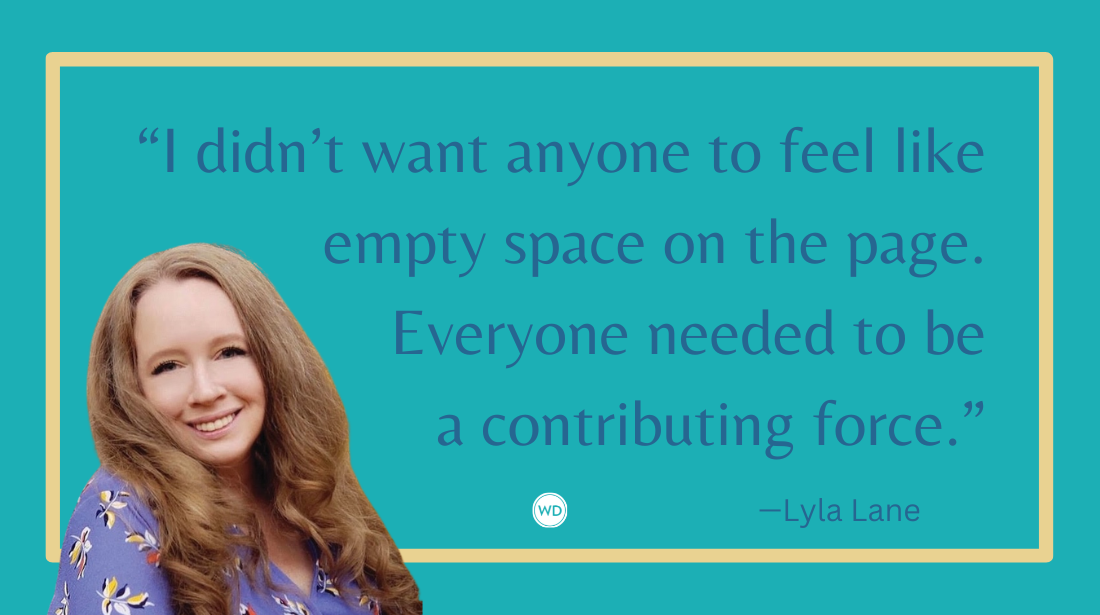The WD Interview: John Updike
Enjoy this Writer’s Digest interview with novelist, short-story writer, poet, and critic John Updike, author of The Witches of Eastwick, the Rabbit novels, and more than 50 other books.
Since the release of his first novel, The Poorhouse Fair, in 1959, John Updike has published 50 books, written a barrage of essays, reviews and short stories for the likes of The New Yorker and The New York Times, and received two Pulitzers—not bad for someone who says he “only meant to be a magazine writer.”
So, with such an astounding body of work, one can’t help but wonder: Does it get easier to sit down with a blank page and turn whiteness to words of power and resilience?
“No, it never gets easier. But, I’ve written enough now that I wonder if I’m not in danger of having said my say and of repeating myself,” he says. “You can’t be too worried about that if you’re going to be a creative writer … but yeah, you do, as they say in pitching, lose a little of your fastball.”
From poetry and book reviews to short stories, novels and even a play, there’s not much the 69-year-old author hasn’t tried his hand at over the years. And each form has presented its own creative satisfaction.
*****
Enter Writer's Digest's Annual Writing Competition featuring nine categories, including rhyming poetry, non-rhyming poetry, personal essay, and more; each with first place prizes of $1,000, second place prizes of $500, third place prizes of $250, and more. Plus, an overall Grand Prize of $5,000, an interview in Writer's Digest magazine, and more.
*****
“I must say, when I reread myself, it’s the poetry I tend to look at. It’s the most exciting to write, and it’s over the quickest,” he says. “But they all have their pleasures. The book reviews are perhaps the most lowly of the bunch, but even they have an occasional creative thrill. I like short stories. I’m sorry that I haven’t been doing so many lately, but they’re very satisfying.”
Whatever the form, Updike’s made an art of turning life’s lost and tormented souls into literary everymen. He illustrates this skill in the four-book series Rabbit, Run; Rabbit Redux; Rabbit Is Rich; and Rabbit at Rest (the latter two received Pulitzers and National Book Critics’ Circle awards).
Using protagonist Harry “Rabbit” Angstrom, Updike offers a running commentary on middle-class America. Written between 1960 and 1990, the books explore everything from racial tension and sexual freedom to drugs and middle age. And with Rabbit, Updike illustrates that even the flawed and ordinary can become legends given the proper landscape.
“We’re past the age of heroes and hero kings,” he says. “If we can’t make up stories about ordinary people, who can we make them up about? But on the other hand, that’s just a theory, and as in America, of course, there’s a democracy that’s especially tied to that assumption.
“Most of our lives are basically mundane and dull, and it’s up to the writer to find ways to make them interesting. It’s a rare life so dull that no crisis ever intrudes.”
Despite saying the Rabbit series was complete with 1990’s Rabbit at Rest, Updike couldn’t resist returning to the storyline in Rabbit Remembered, a novella appearing with several short stories in 2000’s Licks of Love.
“It was like coming home every 10 years and paying a visit,” he says. “It was easy because I was at home in that world, and it was a world that I had lived through as a child, and then it was a world that I had made.”
The real world Updike created for himself wasn’t without risk. After graduating from Harvard in 1954, he joined the staff of The New Yorker. Two years later, with no other job prospects, he left the magazine and moved with his family to Ipswich, Mass., to pursue freelancing full time.
“I didn’t quite know what I was getting into,” he says. “It was a gamble, but I was young and that was the time to make it … when I was young and full of what I had to say.”
What felt like a gamble more than 40 years ago now seems an admirable tale of bravery—one man’s pursuit of his dream. But even Updike recognizes that in these changing times, his literary start is one not likely duplicated by today’s young writers.
“My generation was maybe the last in which you could set up shop as a writer and hope to make a living at it,” he says. “I began when print was a lot more glamorous medium than it is now. A beginning fiction writer—Kurt Vonnegut comes to mind—could support himself and a family by selling to magazines. I’m not sure you could do that now.”
With the consolidation of major publishing houses and fewer magazines embracing short fiction, up-and-coming authors may find publication even more of a challenge.
“It’s harder to make a splash nowadays,” he says. “Publishers are looking for blockbusters—all the world loves a megaseller.”
Keeping to his frenetic pace—though he says, “I don’t mean to be too overproductive”—the author is currently at work on another novel he hopes to complete by the end of 2001. But, as he writes away the mornings and early afternoons in his Massachusetts home, even Updike is tempted by the same distractions that plague so many others.
“I work at home, upstairs, so it’s unfortunately handy to any number of little chores that seem to have attached themselves to the writer’s trade … answering mail or reading proofs.”
Despite the fact that it may not get any easier to start each new book, Updike’s long career now enables him to draw on a wealth of insight inherited from the various forms he’s perfected throughout the years.
“Poetry makes you a little more sensitive to the word-by-word interest of prose, and book reviews make you a little more erudite in some regards … probably had I not written so many reviews, I wouldn’t have tackled something like Gertrude and Claudius, which is a sort of bookish inspiration,” he says.
“I’m generally sort of more cautious in the way I write now than I used to be, though. I write slower, try to think a little more.”
And to the legions of struggling writers waiting in the wings to make a “splash” of their own, it’s perseverance and dedication that Updike advises:
“Try to develop steady work habits, maybe a more modest quota, but keep to it. Don’t be thin-skinned or easily discouraged because it’s an odds long proposition; all of the arts are.
“Many are called, few are chosen, but it might be you.”








